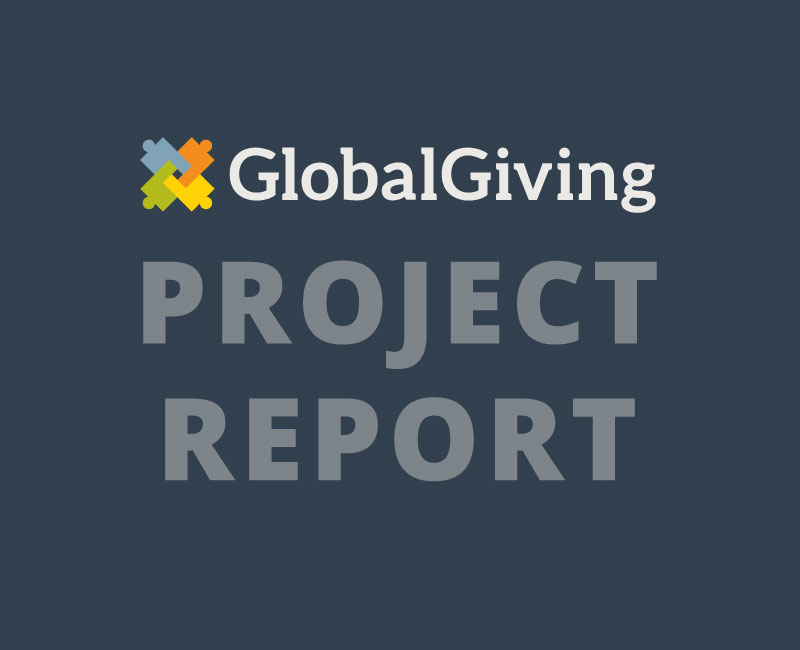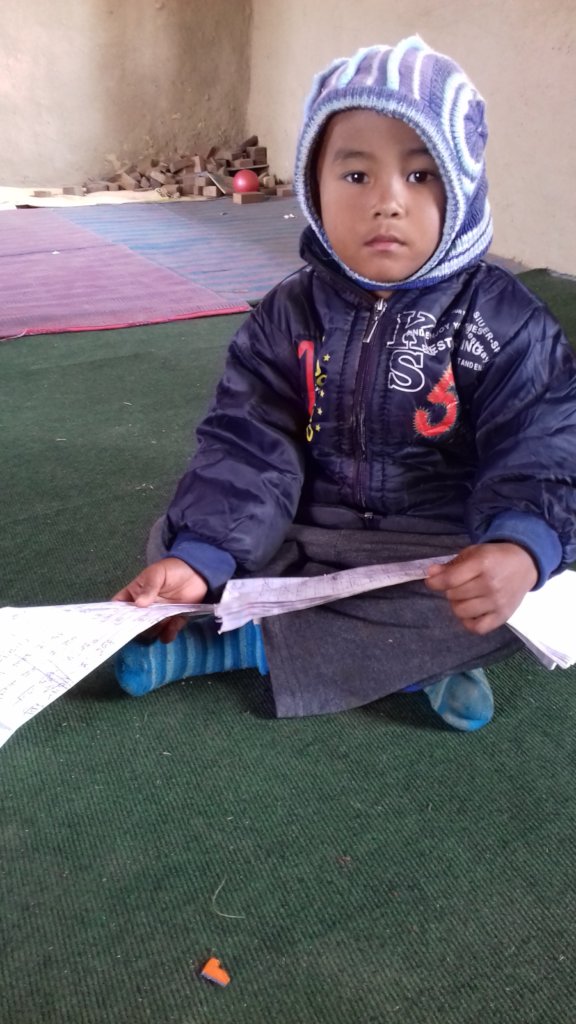![]()
- Background:
Nepal is a landlocked country in South Asia is bordered by two giants' country-India and China. Nepal has a traditional economic system in which the majority of the population engaged in subsistence agriculture. Nepal is under developed country and poverty rate is 25.2% (according to the population census 2011). In each year, millions of people including children victimized by traffickers and they easily trapped to the innocent people and children by fake promises and commitment. The children are coerced into forced labor, forced begging, sexual exploitation and domestic servitude.
The incidence of child labor in Nepal is higher in comparison with other countries in south Asia. The majority of children age 6-15 in the labor force work in the agriculture field. The agricultural sector is very dangerous for children, due to their exposure to harmful chemicals and dangerous weather conditions. The children are also involved in domestic labor for the purpose of childcare, cooking, fetching water and cleaning. Poverty is a driver of child labor because the cost of schooling is very high. Not having access to schooling often leads parents to find employment for their children. Children who are enrolled in school often have to work in order to afford the costs of schooling.
Thus large numbers of the children are found dropped out from school due to the scarcity of economic opportunities at home, social and educational awareness. These children work for 17-18 hours a day and they do not even get their wages from their owners. In Nepal, poorest families are unable to afford cost of education for their children and by desperation and or custom are often compelled to send their children out as child labor.Nepal has open border with India therefore most of the women and children has been sent to India. Therefore BASE explores funding and applied for grant to for the support to Education Support for Child Laborers.
In July 2018 Nepal federal government passed Master Plans that prohibit child labor in all work sectors. As per the master plan the use of children as domestic helpers, porters, farm workers, in collection and trafficking of narcotic drugs, in the carpet weaving, embroidery and hosiery, in brick kilns, in mining sector, in the entertainment business (including sexual abuse), and in the transport sector has been prohibited. All these form of child labor have been declared serious crime and draw maximum penalty in case of non- compliance. The main goal of the Master Plan is to put an end all types of child labor until 2025. However, this strong decision made by Nepal government is in questions to ensure effective implementation in the society.
- Introduction:
This is the project completion report of Education Support for Child Laborers in Nepal (Project # 27536). Backward Society Education (BASE) has received this grant in two times (one is on May 31, 2017 and second is on July 31, 2017). BASE has been working for child rights and advocacy since the organization established in mid and far west regions of Nepal. BASE has been carrying out several interventions to address the issues and needs of child labors.
BASE has been successfully implementing the project entitled Education support for child laborers in Nepal in the financial support by the Global Giving. Under the project, in total 37 child labor (16 boys and 21 girls) received educational material support and 10 (ten) parents received tools and business support in Dang, Kailali and Banke districts. The major aim of the program is to stop child labor, reduce drop out and out of school children by accessing them to education. At the same time making parents responsible through parent's awareness session and vocational support or income generation activities (IGA) with skill development training which will contribute in eliminating child labor from community in sustainable way and contribute to achieve SDG 1-end poverty in all its forms everywhere, SDG 4- ensure inclusive and equitable quality education and promote lifelong learning opportunity for all, SDG 5- achieve gender equality and empower all women and girls and SDG 8- promote sustainable, inclusive and sustainable economic growth, full and productive employment and decent work for all.
BASE has done coordination with local government institution before educational material support as the local government institutions are the responsible to ensure the quality education for all children in their constituencies. In our project areas the local government is serious to make child labor free in their constituencies so hazardous child labor is not found. BASE has provided support to those children who were working as child labor. Although, children's' are enrolled in schools but lack of proper educational material their learning level is very week and they are irregular at class. Due to lack of educational material and school uniform children feel shame with their class mate. So the chance of drop out is high of children from school. Therefore BASE has decided to provide educational material support to those children who are in vulnerable. The educational material support to children and livelihood support to their parents help to break the practice of child labor.
- Summary of the project achievement:
- 37 children (16 boys and 21 girls) received educational material and out of 37, 2 girls are rescued from the land lords home in Kailali district,
- 10 (ten) parents received tools and business support in Dang and Banke district,
- 7 (seven) staff including 2 board member received orientation about the project modality,
- 15 parents received parenting education session,
- 5 (five) parents received tools and business support
- Brief summary about activities under the Education Support for Child Laborers in Nepal (Project # 27536): The following are the activities carried out by BASE in the project proposed districts.
4.1 Program orientation meeting
BASE has formed a team to carry out for the effective implementation of the project activities related to this project. The two board members have assigned for this task and they received orientation about project modality from senior staff of BASE. The orientation meeting was held on Aug. 20, 2017 at central project office Tulsipur Dang, Nepal for a full day. The objective of the meeting was to make common understanding and program implementation modality. The Executive Director of BASE Mr. Churna Bahadur and project leader Mr. Mahabir was facilitated the meeting. The meeting has crafted the plan including first priority to make small survey to identify child laborers who are worst form or out of school. The data gathering from survey has helped to keep the record of child labor and also helped to start support for education materials and vocational support for their parents.
4.2 Coordination and linkages
In order to maximize the collaborative action especially for the rescue of child labor BASE has made coordination and linkages with other state and non-state actors in project districts. To make rescue of the children from his/her work place it was so risky and owner might not have easily release the child. So, considering the situation BASE has been continue making coordination with local government authorities, law enforcement authorities, journalist, human rights and civil society networks members. The coordination meeting was helped to make clear objectives of the project initiative that was implemented during implementation of activities.
4.3 Educational material and school uniform support to child labor:
The major aim of the program is to stop child labor, reduce drop out and out of school children by accessing them to education. BASE has been provided educational materials to those who were working as child labor and each child received 2 dozen copies, 2 pens, one set geometric box, English Nepali dictionary-1, school bag-1, sweeter -1, shirt-1, Meddy-1, choose- 1pair and suck- 1 pair. These support will help to the children for their continue education at government school and ultimately contribute to break the child labor practice. The support will also address the problem of child labor through improving educational standards as well.
4.4 Parenting education:
In rural areas of Nepal still parents are not fully aware of the importance of childhood and their education. Many parents believe that female children should be at home doing domestic work instead of going to school. The main reason is that there would not be enough people supporting the household and that girls will be given away in marriage which is not beneficial at their home. Girls who do go to school are still expected to do the same amount of labor at home because they typically do domestic work, while boys do less labor when they are enrolled in school because they typically do market work. From the home the gender discrimination starts by the parents. Considering the facts that BASE has conducted the parenting education where the parents receive awareness and enhanced knowledge on importance of childhood and education and ultimately they send their children at school for completion of education cycle. In total 15 parents received parenting education under this project. The parents are also encouraged to build their village as a child friendly (child labor free village).
4.5 Support to parents for business entrepreneurship tools:
To create a prosperous society and dignified and healthy life of the community people there should be economic development opportunity for the parents so that they can make plan for their children's education in sustainable way. Parents feel that by enrolling their children in school they are missing out on the income that they could bring in immediately and to address this issues it is dire need to provide support for the employment opportunity. Considering this above challenges BASE has provided support to the parents of child labor for the vocational skill with tools and material for small business enterprise. Under this project in total 7 (seven) parents received tools and business support. BASE has also encouraged them to make strong link with locally available micro finance institutions to extend their entrepreneurs or income generation activities (IGA). Before providing support it was made rapid assessment of market feasibility so that production can be sold easily. It is expected that they will afford education cost for their children. During follow up in the field they are continue running their business.
4.6.Rescued child labor and support educational material:
Under this project two children have been rescued from their landlord's home. Before rescue them BASE has made coordination with local government authorities, law enforcement authorities, journalist, human rights and civil society networks members. The coordination meeting was helped to rescue them. BASE has provided educational materials to those who were rescued from child labor. Ms. Shobha has rescued from landlord Mr. Mahendra in Kailali district and Ms. Santoshi rescued from landlord Mr. Jalal's home in Kailali district. They are now staying with their parents. Each child received 2 dozen copies, 2 pens, one set geometric box, English Nepali dictionary-1, school bag-1, sweeter -1, shirt-1, Meddy-1, choose- 1pair and suck- 1 pair. These support will help to the children for their continue education at government school.
![]()
![]()
![]() Attachments:
Attachments:
![Share on Twitter]()
![Share on Facebook]()



